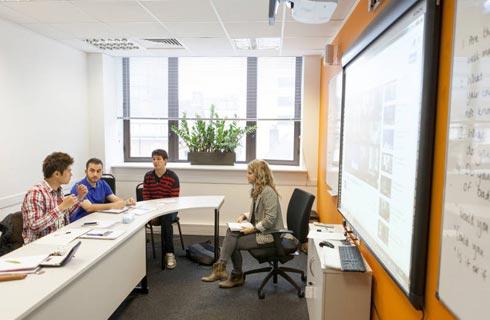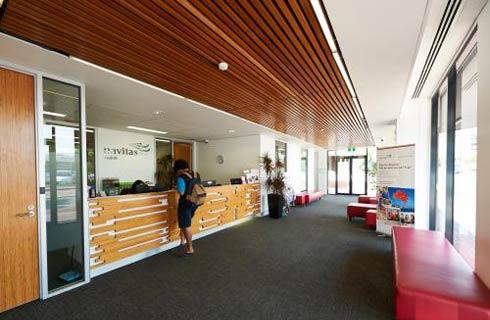Bachelor of Science in Engineering in Electrical Engineering

学历文凭
Bachelor Degree

专业院系
Department of Electrical and Systems Engineering

开学时间

课程时长

课程学费

国际学生入学条件
International applicants who have completed one year or more of full-time coursework at a post-secondary institution in the United States. The total amount of academic work completed must be officially graded by the registrar of that institution and have a cumulative GPA value of 3.0 or higher, excluding ESL curriculum.
International applicants who have received a degree from an international post-secondary institution whose language of instruction is English. Official documentation will be required from the institution's Registrar's office stating that the medium of instruction for the degree received was English.
International applicants who have achieved 510 or higher on the Evidence-Based Reading and Writing section of the SAT or 24 or higher on the English, Reading, and Composite on the ACT.
International English Language Testing System (IELTS), or Duolingo are required for International applicants whose primary language is not English. The minimum score requirement for the TOEFL is 550 (paper-based), 213 (computer-based), or 79 (internet-based), minimum score requirement for the IELTS exam is 6.5, minimum Duolingo score requirement is 100. Test scores must be sent directly to the University of Connecticut from the respective test provider.
IDP—雅思考试联合主办方

雅思考试总分
6.5
- 雅思总分:6.5
- 托福网考总分:79
- 托福笔试总分:550
- 其他语言考试:Duolingo score requirement is 100
CRICOS代码:
申请截止日期: 请与IDP联系 以获取详细信息。
课程简介
相关申请
 预科
预科 奖学金
奖学金 实习机会
实习机会 在校学习
在校学习 跨境学习
跨境学习 校园授课-线上开始
校园授课-线上开始 在线/远程学习
在线/远程学习
开学时间&学费
学费信息仅供参考,请与IDP联系以获取详细信息
| 开学时间 | 时长 | 学费 | 地点 |
|---|
本校相关课程

Bachelor of Science in Accounting
学历文凭
Bachelor Degree
开学日期
课程费用总额


Bachelor of Arts in Art
学历文凭
Bachelor Degree
开学日期
课程费用总额


Bachelor of Fine Arts in Studio Art
学历文凭
Bachelor Degree
开学日期
课程费用总额


Bachelor of Fine Arts in Studio Art - Graphic Design
学历文凭
Bachelor Degree
开学日期
课程费用总额


Bachelor of Fine Arts in Studio Art - Illustration/Animation
学历文凭
Bachelor Degree
开学日期
课程费用总额


Bachelor of Fine Arts in Studio Art - Painting and Drawing
学历文凭
Bachelor Degree
开学日期
课程费用总额

其他相关课程

Master of Science in Electrical and Computer Engineering - Embedded Systems
 密歇根大学安娜堡分校
密歇根大学安娜堡分校学历文凭
Masters Degree
开学日期
课程费用总额


Doctor of Philosophy in Electrical and Computer Engineering - Control Systems (Production Systems Engineering)
 密歇根大学安娜堡分校
密歇根大学安娜堡分校学历文凭
Ph.D.
开学日期
课程费用总额


Master of Science in Electrical Engineering
 韦恩州立大学
韦恩州立大学泰晤士高等教育世界大学排名:603
学历文凭
Masters Degree
开学日期
课程费用总额


电气工程学硕士
 德克萨斯农工大学学院站分校
德克萨斯农工大学学院站分校学历文凭
Masters Degree
开学日期
课程费用总额


电气与计算机工程哲学博士-模式分析与机器智能
 滑铁卢大学
滑铁卢大学学历文凭
Ph.D.
开学日期
课程费用总额


电气工程理学硕士
 北佛罗里达大学
北佛罗里达大学学历文凭
Masters Degree
开学日期
课程费用总额











